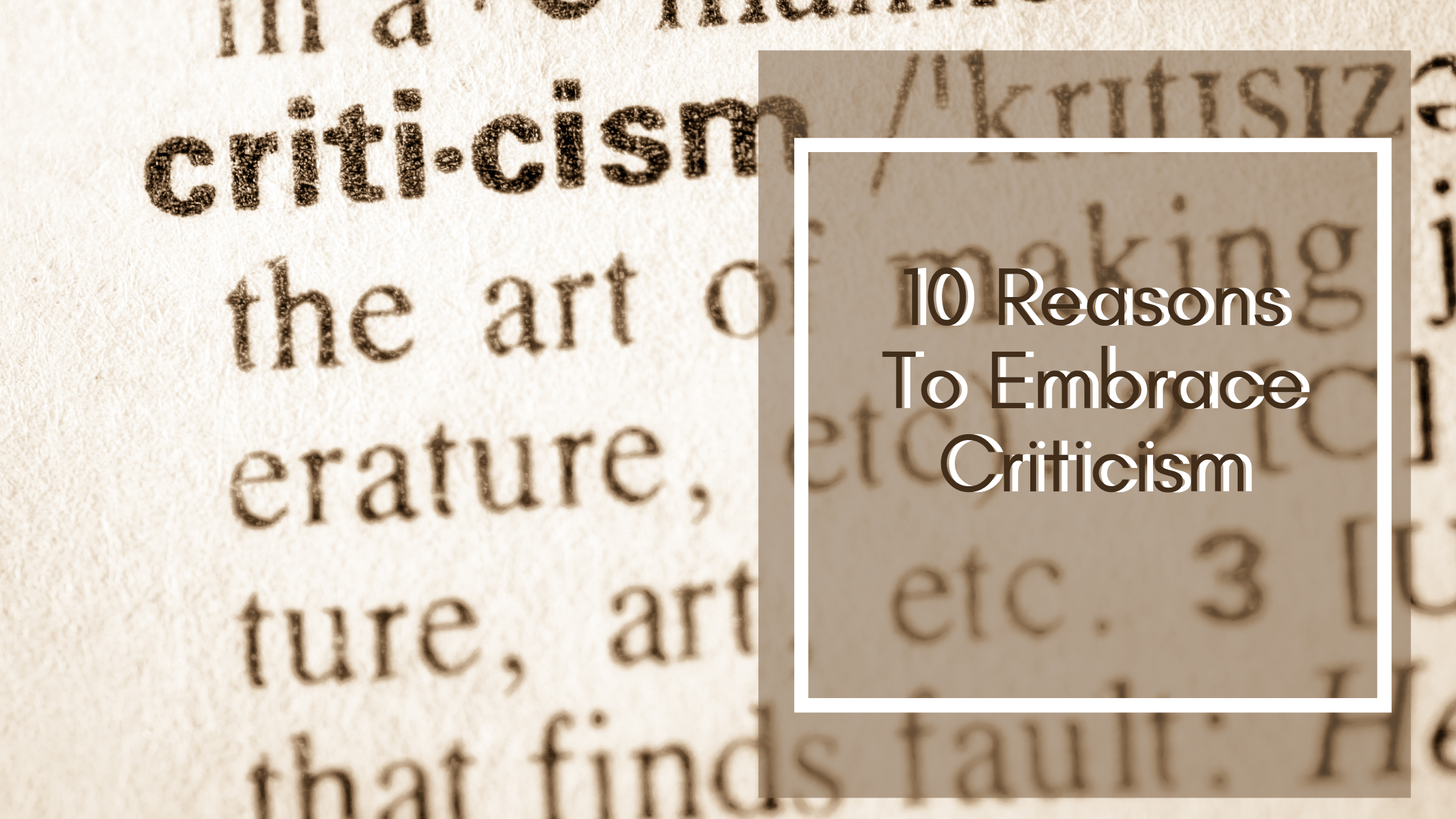10 Reasons To Embrace Criticism

There are many reasons why embracing criticism can be a helpful, constructive process.
While criticism gets a bad reputation, if you accept it for what it is (and isn’t), you can actually use criticism to better yourself and improve your practices. Whether it is in your personal or professional life, feedback and criticism can play a healthy role in your development and should be viewed as a positive force.
1. Criticism Develops Your Listening Skills.
When others are offering you criticism, you should practice active listening to hear what is being said and process it appropriately. When you listen and hear the feedback being offered, rather than immediately getting defensive and formulating a response, you become a better listener.
2. Criticism Helps You Work Smarter.
Criticism is meant to improve your work or your actions. When you receive critical feedback, it is crucial you take the time to appraise it and move on, using what was offered to inform your work and ignoring the rest. This saves you time and energy, because you can adjust to what is needed in the situation.
3. Receiving Criticism Helps You Set Boundaries.
Not all criticism is delivered in helpful tones or with thoughtful words. When someone offers you feedback but uses harsh words or an angry voice, it is an opportunity for you to set boundaries that help you be successful. Accepting criticism is much more comfortable when the tone and words show respect and value and standing up for yourself can help you create better relationships with those who are offering the criticism.

4. Criticism Helps You Develop Humility.
When you receive criticism, it forces you to examine your own values, actions, and beliefs. While this may be uncomfortable, it can also help you grow; if you are open, it can help you accept that you have weaknesses that may need to be addressed.
5. Criticism is Simply Another Point of View.
Feedback lets you know that others view the situation differently than you. It exposes you to views you perhaps had not considered. By expanding your perspective, you can better handle future situations, and it might change your actions or beliefs, as well.
6. Criticism Can Improve Your Practices.
When someone offers you feedback, he or she is often trying to show you that there is a different, perhaps better way to do something. Whether you choose to accept it, it still can be an excellent opportunity to examine how you work or why you do the things you do. Avoiding negative outcomes should be the goal, and if the feedback helps you see what to improve what you do or how you do it, that’s a positive thing.
7. Criticism Can Expose Unresolved Problems.
When someone offers you feedback that immediately causes a strong reaction, there is a good chance it has exposed an underlying issue for you. Perhaps you are sensitive because you feel insecure about your knowledge or skills. Maybe you have a bias you were not even aware you had. Criticism can help brings these to light, which means you can start healthily dealing with them.
8. Criticism Can Make You Gentler Toward Others.
When you are the receiver of harsh criticism, it helps you understand how better to offer feedback to other people. By using your experiences, both positive and negative, of receiving feedback, you can inform your own practices. When you provide feedback in the future, you will remember the feedback that helped you grow and learn and that which shut you down or made you feel inferior. Use those examples to inform how you treat others.
9. Criticism Can Be Very Motivating.
When you already have doubts about your abilities, and someone expresses criticism that echoes your thoughts, it can be very motivating to prove them and yourself wrong. Feedback can provide you with added incentive to correct something that has been bothering you for a while.
10. Criticism Reminds You That No One is Perfect.
When accepting criticism, it reminds us that not everything is perfect nor has to be. While you can strive to make improvements, criticism helps us remember that it is okay to be less than ideal. Accepting your own imperfection is liberating, making it easier to hear criticism when it is offered, as well.







